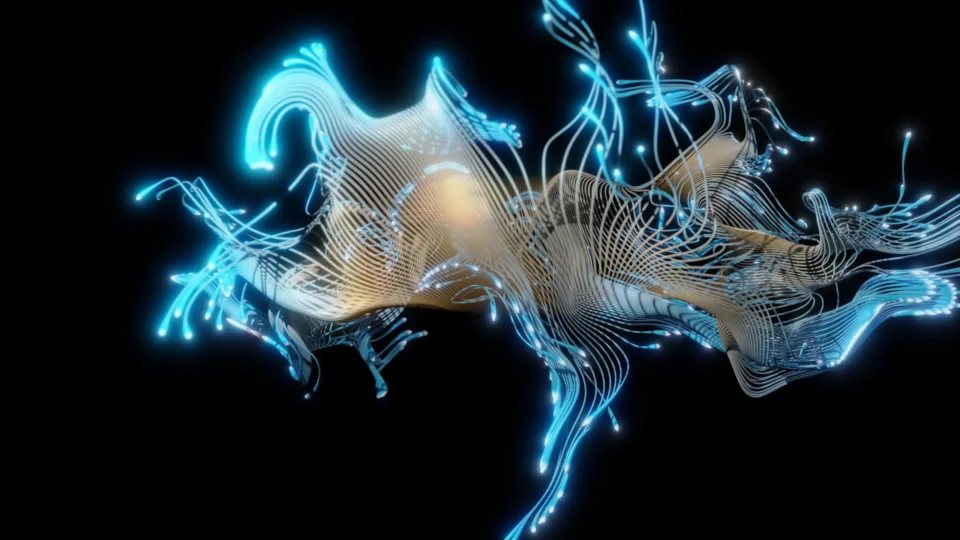Physical health is finally at the top of our priorities, but how are we addressing our mental state?
The pandemic has ignited a much needed global conversation about health. A new found heightened vigilance for our physical wellbeing aids in limiting the spread of the virus, but also has a detrimental effect on our social anxiety and mental wellbeing.
Limited human contact, a drastic change to habits, change in environment (working from home) and economic uncertainty has had a considerable impact on our mental health. We use the words ‘stress or stressed’ so frequently in our day-to-day diction that sometimes the signs of high stress levels are being overlooked. High stress levels can include symptoms of; depression, restlessness, feeling overwhelmed, unfocused, trouble sleeping, problems with memory and the higher the cortisol level (the hormone released when you’re stressed) the less able our brains are capable of functioning properly.
As companies transition post-lockdown into a new sense of normalcy, one thing that’s not being discussed enough is how we begin to support mental health both short and long term.
Organisations such as Asana have nap rooms for staff to rest, recharge and restore throughout the day. Google are known for their all encompassing wellness programme which includes fitness centres on site. Although wellness has been a core principle for leading businesses, the move to remote working means we need to adapt to supporting employee health remotely on a global scale.
How we're hacking the problem.
The most accessible form of health technology is mobile applications, as there are over 3.5BN global smartphone users, more than any other device.
We’ve even created a roundup of our favourite apps we’re using as a team here.
After researching further into wellness apps, our team quickly understood that the biggest challenge with the current health tech available is the fact they all assume we know what our health issues are. Most require a preliminary self-diagnosis, which presents problems in being led to the incorrect treatment, especially for anxious or hypochondriac types.
Want to explore the possibilities of new technologies? Get in touch to explore ideas.
Want to explore the possibilities of new technologies? Get in touch to explore ideas.
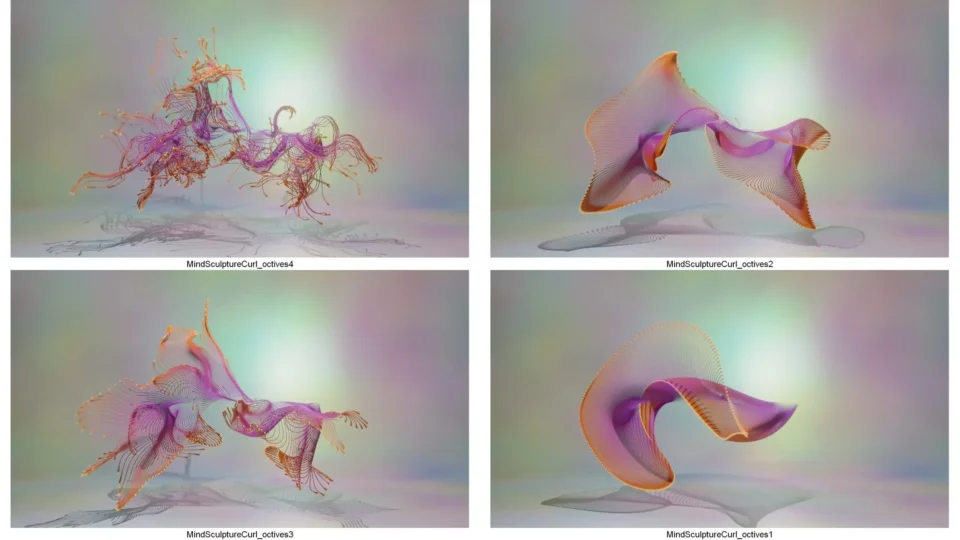
Introducing MYndScAPE.
We decided to build a proof of concept. An application that could interpret your biometric data (collected from smart devices) and visualise the information into something everyone could understand.
Visually it would present a sculptural form inspired by nature, that could change and evolve depending on your data. A dynamic sculpture that could display on your mobile, desktop, change your avatar, profile pic and even project holographically on your physical work desk.
This would allow users to view their changing state, but also allow users to share, and open up a much needed dialogue with friends and family.
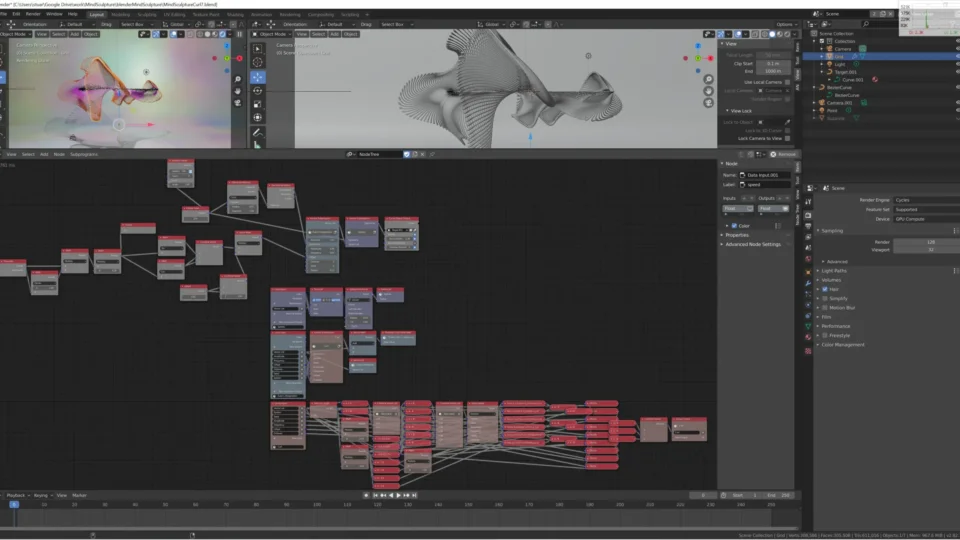
How does it work?
To create the MyndScape data visualisations we called on a range of skills in our creative Lab’s team.
Data collection was the most important – what data would we collect and why. We decided to gather raw data from a combination of accelerometer sensor readings for movement and pulse sensors for heart rate. These are captured from a user’s wearable or smartphone using a custom app.
The data is then processed and wirelessly sent to a workstation running Blender and a custom Animation Node graph. Each parameter influences the growth of a 3D sculpture model. These are uploaded to Sheepit, the crowdsourced distributed render farm which accelerates the raytracing, creating beautiful images and animated sequences. The final images are sent back to the user to enjoy or share.
Combined with meditation and yoga exercises, the app can also guide you into changing your sculpture.
Go from a stressed and anxious visual to a much less turbulent image after a session with realtime visual feedback.
Each sculpture is a unique record of your meditation session and a visual insight into your state of mind.
See some of our team’s MyndScape’s, captured over the first few weeks of lockdown below.
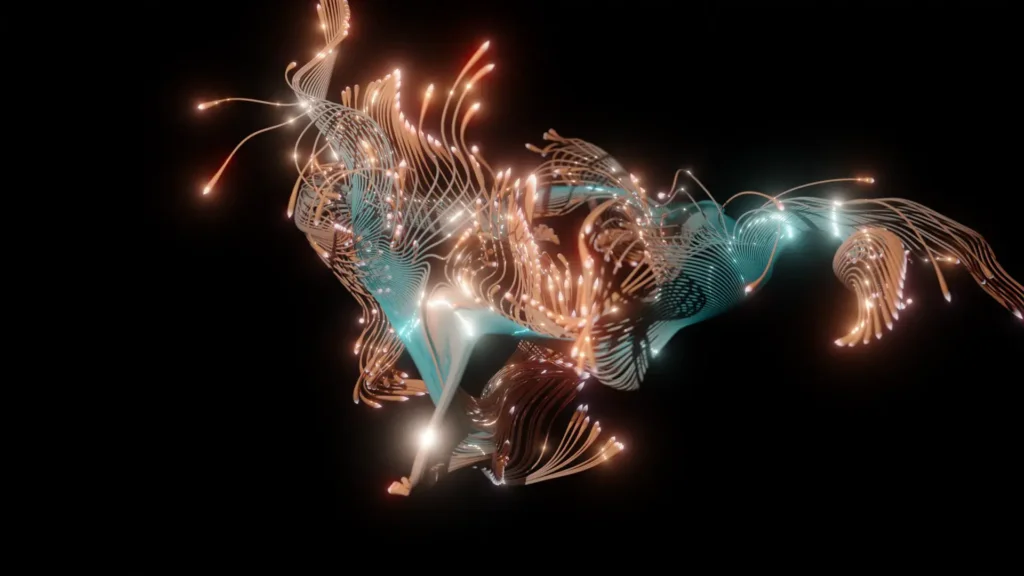
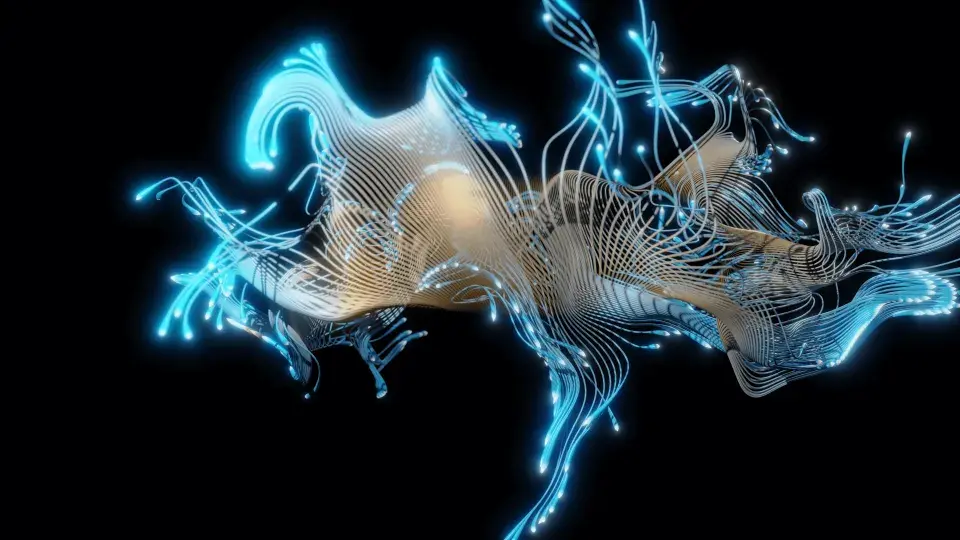
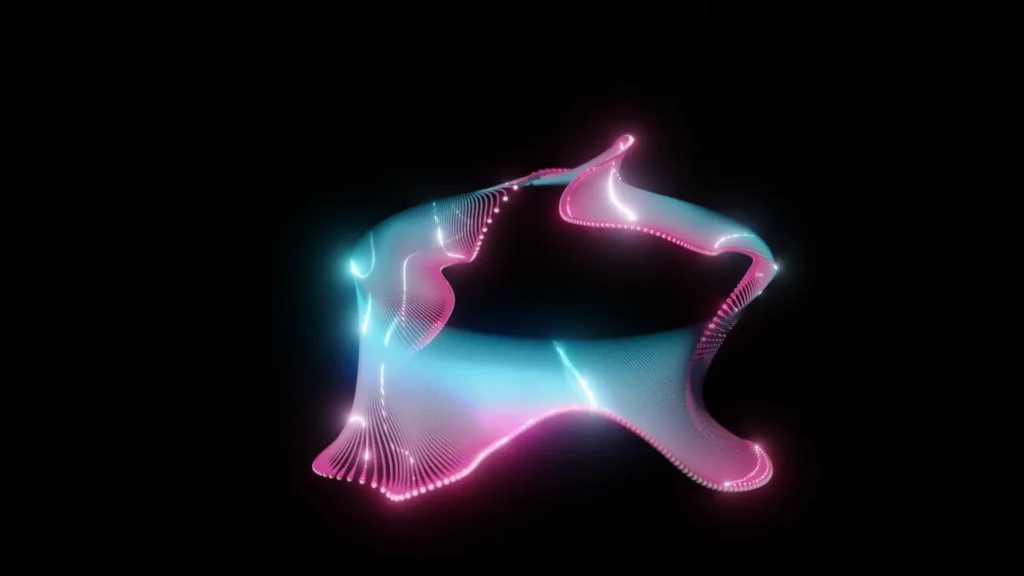
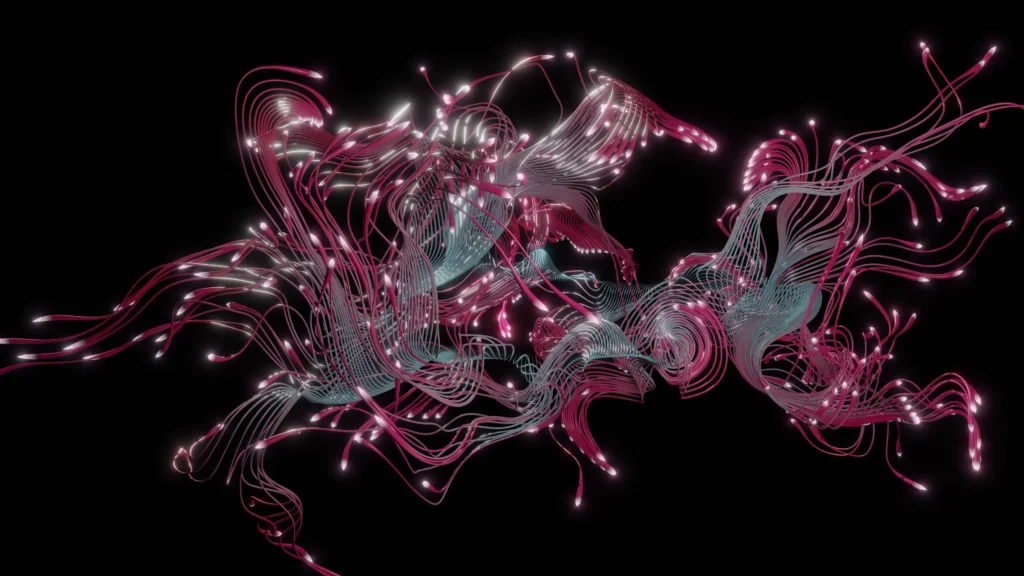
We’re always looking to expand our network of creative collaborators, from technical specialists to people that work in more traditional art forms. LAUNCH exists to blend the barriers between creative practices and new tech. Get in touch to explore ideas.
